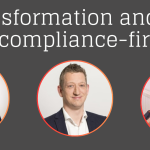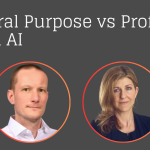Updated 1 October to include an interview with co-founder Jay Madheswaran on the question of ‘what now’ for this unicorn startup
Eve, a US large language model-based plaintiff litigation management platform, has today (30 September) raised $103m Series B at a $1bn valuation. The round was led by Spark Capital, with participation from existing investors Andreessen Horowitz, Lightspeed Venture Partners, and Menlo Ventures.
Announcing the raise on X, CEO and co-founder Jay Madheswaran said: “Huge news out of SF! 🚀 Eve just raised a $103M Series B at a $1B+ valuation. Led by @sparkcapital @a16z @lightspeedvp. Our mission? Arming plaintiff law firms – the ones fighting for individuals against corporate giants – with AI to deliver justice at a scale never seen before.”
Eve positions itself as a David vs Goliath platform to help individuals who are facing large corporate legal teams level the playing field.
Eve only in January announced it has secured $47m Series A. It also unveiled a new tailored offering for personal injury firms, enabling attorney to create detailed medical chronologies, identify key case risks, and calculate damages “within minutes”.
Eve today says it serves over 450 US law firms including Mike Morse Law Firm, The Law Offices of James Scott Farrin, Barrett & Farahany, Disparti Law Group, Frontier Law Center, Laurel Employment Law, and Hershey Law.
“Eve has transformed the way we work,” said Ryan Bliss, Partner & Head of Legal Technology at the Law Offices of James Scott Farrin. “We use it to streamline everything from medical summaries to settlement analysis memos, which frees up our attorneys to focus on strategy instead of paperwork.”
Speaking to Legal IT Insider about the raise and what’s next, Madheswaran told Legal IT Insider: “This is the fun part now. We have strong product-market fit and firms are using us every day. People had a lot of scepticism at first, including investors and everyone else in the AI world, but it’s not hype – we’re affecting lives for the better.”
He added: “We’re finding ways to bridge people, process, and technology. You can make the best AI possible, but if no one uses it or gets the most out of it, it’s useless. Legal professionals aren’t used to new tools; we’ve arranged customer support around that and have got to the stage where customers are telling us what to do.”
Ask any startup if it’s a good idea to have your strategy driven by each and every customer demand and they will say no, given that it can lead to wide but shallow product development. However Madheswaran says that his time as an engineer at Facebook and also Rubrik showed the need to be laser-focused on understanding the customer, commenting: “If you dig into the fundamental problem, that lets you architect the solution so you’re not just solving one problem but future problems to come.”
Eve is a pure AI play, which sets it apart from many ‘human in the loop’ legal AI startups. It hasn’t been easy to build trust but this sector, given the nature of plaintiff litigation, is ripe for disruption. Madheswaran said: “Plaintiff attorneys’ resources are limited and they have to serve hundreds of clients a year – they don’t have repeat clients. That’s a pretty complex business: no recurring revenue and churning customers, so labour and efficiency are directly what they’re looking for. This is one reason why some of our customers are doubling or tripling client numbers, which creates better outcomes for neighbourhoods.” Interestingly, one of Eve’s customers has started doing a lot more pro bono work, which is normally prohibitive in terms of time and costs.
Adoption, Madheswaran says, also comes down to Eve having dug deep into workflows to understand and replicate them, with Eve providing the ability to verify its output within the platform.
Madheswaran was an investor before Eve – at Lightspeed Venture Partners – and observes: “It’s fun to see the previously most laggard space adopting tech faster than any other industry. Legal has a lot of visibility now.”










